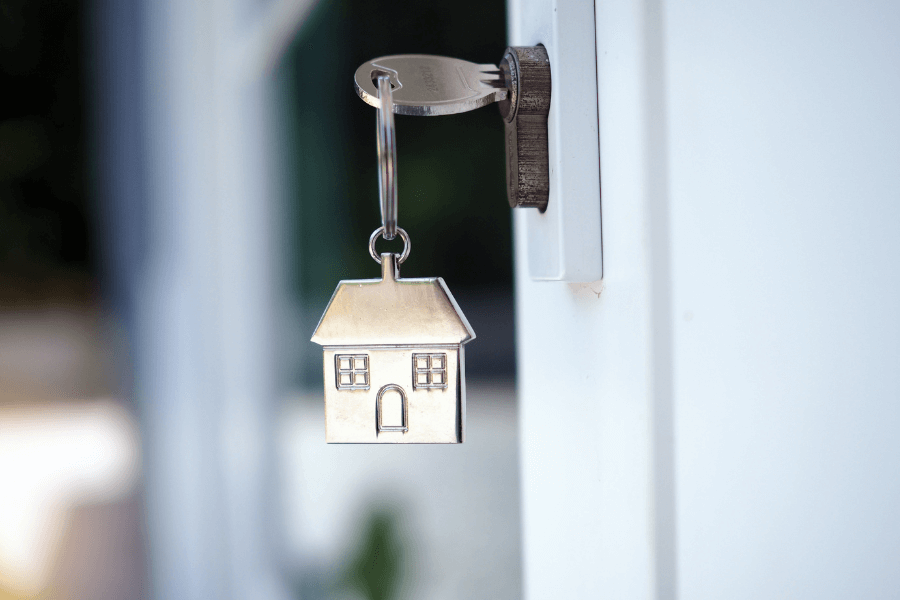Thinking about buying property at auction? You’re not alone. Property auctions are common across Australia’s real estate scene—and for good reason. They can be fast, transparent and competitive. But they’re also legally binding, high-pressure environments that favour the prepared.
This ultimate guide is for everyday Aussies. From first-time buyers to seasoned investors, we’ve put this together for anyone who want to understand how auctions work, what to watch out for, and importantly, how to bid smart when the hammer’s about to fall.
Short answer: Buying a property at auction means competing in a live public sale where the highest bid wins—if it meets the seller’s reserve. There’s no cooling-off period, and you’ll usually need a 10% deposit on the day.
Topics in this article:
What is an auction?
How do auctions work?
In real estate, an auction is a public sale where interested buyers bid for a property. An auctioneer facilitates the event, often held on-site or online, and the property is sold to the highest bidder—provided the bid reaches or exceeds the reserve price.
Once the gavel falls, the sale is legally binding. There are no conditions, cooling-off periods or take-backs.
Auction vs private sale
In a private treaty, buyers make offers to the vendor via the agent. There’s room for negotiation, finance clauses, and cooling-off rights in some states.
At auction, it’s all or nothing. No conditions. No negotiations. No cool-off. That’s why pre-approval and due diligence are essential before auction day.
Why do properties go to auction?
Sellers choose auctions to create urgency and competition. A well-marketed campaign can drive interest and encourage emotional bidding, often resulting in a quicker or higher sale price. Auctions are also popular in hot markets or for unique properties where setting a price is tricky.
What is a reserve price?
The reserve price is the minimum the vendor is willing to accept. It’s usually confidential. If bidding doesn’t reach this threshold, the property is “passed in”. Negotiations may then take place with the highest bidder.
Is it good to buy an auctioned property?
What are the benefits of auctions?
- Transparency: You see your competition and know where you stand.
- Speed: Settlement is usually quicker than private sales.
- Fairness: Everyone has an equal shot—if they’re ready.
Is it cheaper to buy at auction?
Sometimes. If demand is low or the vendor is motivated, you might snag a bargain. But in competitive suburbs, auction prices can soar well above reserve. Research local sales and set your max bid in advance.
What are the risks of buying a house at auction?
What are the disadvantages of auctions?
- No finance clause: You must have funds ready. No exceptions.
- Emotional bidding: Competition can cloud judgment.
- Upfront costs: You’ll spend on legal checks and inspections before knowing if you’ll win.
What are the rules for buying a house at auction?
Are auction bids legally binding?
Yes. If you win the auction, you must sign the contract and pay the deposit—usually 10%—on the spot. There’s no backing out.
What do I need to know before an auction?
- Get pre-approved finance
- Conduct a building and pest inspection
- Review the contract with a solicitor or conveyancer
- Register to bid with ID
Does an auctioneer have to accept a bid?
No. They can reject bids if they suspect misconduct or if a bid is too low.
Can the auctioneer refuse a bid?
Yes. The auctioneer has discretion to refuse bids they consider disruptive or insincere.
What is a vendor bid?
This is a bid made on behalf of the seller. It must be declared clearly and can only be placed if allowed in that state’s auction laws.
What is dummy bidding?
Illegal. Dummy bidding is when someone falsely bids to inflate price. It’s against consumer law in every state.
What happens if nobody bids at an auction?
The property is passed in. The vendor can then negotiate with interested parties or relist later.
What does passed in at auction mean?
Bidding didn’t reach the reserve. The highest bidder may get the first chance to negotiate a sale.
Other specific auction rules per state
- Victoria: No cooling-off, vendor bids allowed if declared.
- NSW: Must register to bid. No dummy bids. No cooling-off.
- QLD: No price guides during campaign. No cooling-off.
- WA: Auctions governed by REBA. Cooling-off doesn’t apply.
- SA: Vendor must disclose reserve price on request. Cooling-off doesn’t apply.
- ACT: Registered bidding required. No cooling-off.
- NT: Auctioneer must be licensed. Laws similar to other states.
- TAS: Reserve must be announced. Cooling-off not applicable.
How much money do you need to buy a house at auction?
Can you finance a house at auction?
Yes, but your loan must be ready to go. Many lenders offer pre-approval that confirms your borrowing power. Full approval must come quickly after winning.
How much is a deposit at an auction?
Usually 10% of the sale price, paid on the day via EFT, cheque, or as directed by the agent. Always confirm before auction day.
What happens if you buy at auction and can’t get finance?
You’re still legally required to settle. If you can’t, you may lose your deposit and face legal action. This is why finance and legal checks must come first.
Who can bid at an auction?
Can someone bid for me at auction?
Yes, with written authority. You’ll need to nominate your proxy and provide ID ahead of time. This is handy if you’re overseas or nervous about bidding yourself.
How to bid at an auction?
How to win an auction
- Do your research—use street and suburb reviews on Homely
- Attend a few auctions first
- Have a clear walk-away price
- Bid confidently and early to set the tone
Can you go to an auction without pre approval?
Yes, but don’t bid unless your finances are sorted. Winning without pre-approval is risky and can cost you dearly.
What should you not do at an auction?
- Don’t bid beyond your limit
- Don’t forget to register or bring ID
- Don’t rely on verbal advice—get everything in writing
When is the property sold?
Once the auctioneer declares it “sold” and the gavel falls, the winning bidder becomes the legal buyer—no turning back.
What happens after an auction sale?
How to pay the deposit after the auction?
Be ready to transfer funds or present a cheque immediately. The agent will usually confirm details beforehand.
Is there a cooling off period when buying at auction?
No. Auctions are unconditional. Once sold, you’re locked in.
What happens if you bid at an auction and can’t pay?
You risk losing your deposit, being sued for damages, and potentially paying the difference if the home sells for less later.
Can I buy a house before it goes to auction?
Is a pre-auction offer a good idea?
It can be. If the vendor is motivated or wants to avoid the uncertainty of auction day, they might accept a solid early offer. But beware—your offer could also be used to set expectations for auction day.
Key takeaways
- Auctions are fast-paced, legally binding, and favour buyers who prepare.
- There’s no cooling-off period or finance clause—be ready with cash or loan approval.
- Understanding local market value and setting a walk-away price helps you bid smart.
- Each state has its own rules—know them before stepping in.
- Use tools like Homely Alerts and Homely Collections to track properties you’re interested in.
Ready to find your dream home? With Homely’s suburb insights, reviews and tools like Alerts and Collections, we make your auction prep easier. Explore listings, get to know the area, and set up alerts so you never miss a chance to bid smart.





